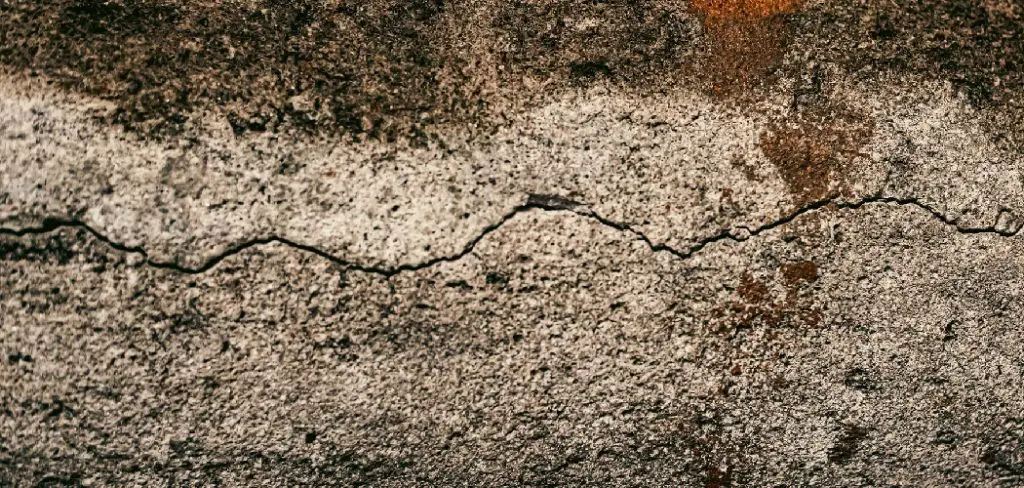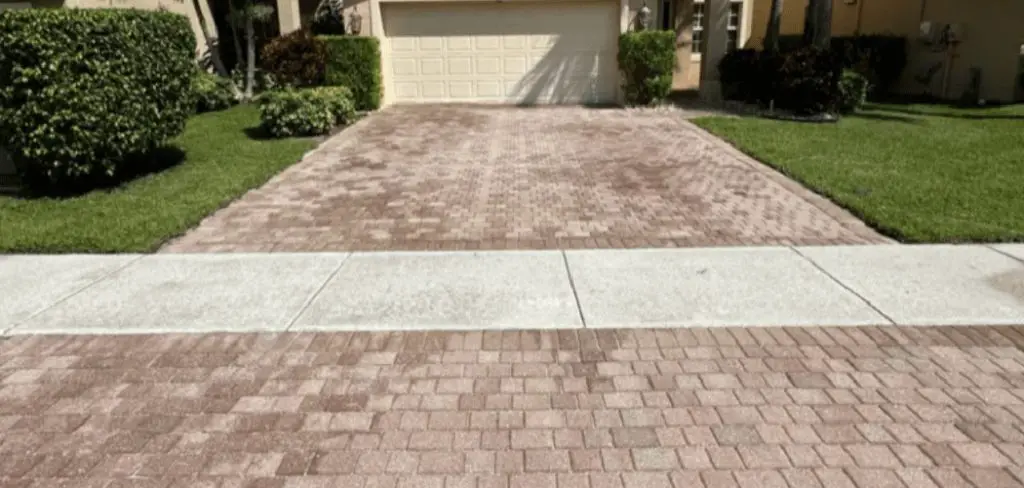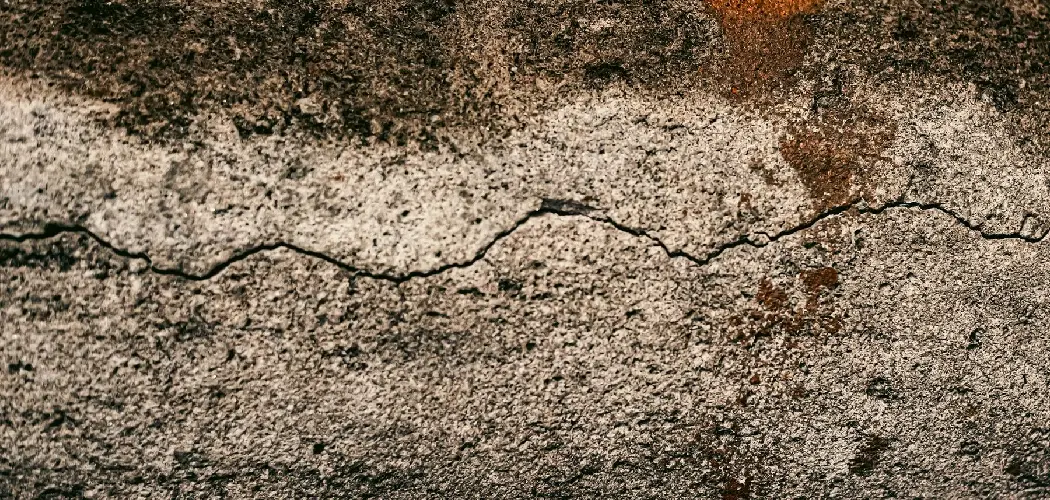To prevent erosion on a sloped driveway, install erosion control measures such as retaining walls and terracing techniques. Additionally, use permeable driveway materials and implement proper drainage systems to redirect water runoff and minimize erosion.
These proactive steps will help protect your driveway from erosion and prolong its lifespan. Whether you opt for retaining walls, terracing, permeable materials, or drainage systems, taking preventive measures is essential to ensure the stability and durability of your sloped driveway.
By addressing erosion concerns, you can avoid costly repairs and maintain a safe and functional driveway for years to come.

Understanding Erosion On Sloped Driveways
Erosion can pose a significant challenge for homeowners with sloped driveways. Not only does it affect the aesthetic appeal of the property, but it can also undermine the stability and functionality of the driveway over time. Understanding the causes and impact of erosion on sloped driveways is crucial to effectively address the issue and prevent further damage.
Causes Of Erosion
Several factors contribute to the erosion of sloped driveways:
- Poor drainage: Insufficient drainage systems can lead to water accumulation on the driveway, causing soil erosion.
- Inadequate ground cover: Lack of vegetation or ground cover exposes the soil to the elements, making it more susceptible to erosion.
- Heavy rainfall: Intense rainstorms can overwhelm the natural drainage capacity of the driveway, accelerating erosion.
- Steep slope: Steeper slopes increase the force and velocity of water runoff, making erosion more likely to occur.
Impact On Driveway Stability
Erosion on sloped driveways can have significant ramifications on their stability:
- Loss of structural integrity: As erosion progresses, it can weaken the underlying support system of the driveway, leading to cracks, potholes, or even collapsing.
- Uneven surface: Erosion may result in an uneven driveway surface, making it uncomfortable and unsafe to drive on.
- Reduced lifespan: Without proper intervention, erosion can expedite wear and tear, shortening the lifespan of the driveway.
By understanding the causes and impact of erosion on sloped driveways, homeowners can take appropriate measures to prevent further damage and ensure the longevity and stability of their driveways.

Assessment Of Driveway For Erosion Risk
Before taking steps to prevent erosion on a sloped driveway, it is crucial to conduct a thorough assessment of the driveway for erosion risk. By identifying vulnerable areas and understanding the factors contributing to erosion, homeowners can effectively implement preventive measures to protect their driveway from potential damage.
Identifying Vulnerable Areas
Identifying the vulnerable areas on a sloped driveway is the first step in preventing erosion. Pay close attention to sections where water tends to accumulate or flow with a higher velocity, such as the bottom of the slope or any depressions in the ground. Look for signs of soil displacement or evidence of previous erosion, such as exposed roots or rocks. Additionally, areas with sparse vegetation or bare soil are more susceptible to erosion.
Factors Contributing To Erosion
Understanding the factors that contribute to erosion is essential in effectively preventing it. Factors such as heavy rainfall, improper drainage, and the lack of vegetation or ground cover can significantly increase the risk of erosion on a sloped driveway. Additionally, the type of soil present on the driveway, its permeability, and the slope gradient all play a crucial role in determining the erosion risk.
Implementing Preventive Measures
Implementing preventive measures is crucial in preventing erosion on a sloped driveway. By taking proactive steps, homeowners can safeguard their driveway from the damaging effects of erosion, ensuring longevity and stability. Two key strategies that can be utilized in this regard are installing proper drainage systems and utilizing retaining walls or terracing.
Installing Proper Drainage Systems
To effectively control water runoff and prevent erosion on a sloped driveway, it is essential to install a proper drainage system. This system can include features such as French drains, catch basins, and channel drains to redirect water away from the driveway and into designated drainage areas. By efficiently managing water flow, the risk of erosion is significantly minimized.
Utilizing Retaining Walls Or Terracing
Another effective method to prevent erosion on a sloped driveway is through the use of retaining walls or terracing. These structures help to hold back soil and prevent it from washing away. Additionally, they create level areas that can reduce the impact of runoff on the driveway, protecting it from erosion and maintaining its integrity over time.
Choosing Suitable Vegetation And Ground Cover
To prevent erosion on a sloped driveway, selecting appropriate vegetation and ground cover is vital. Opt for grasses, shrubs, or mulch to stabilize soil and reduce runoff. By carefully choosing suitable plants, you can effectively maintain the integrity of your driveway and minimize erosion risks.
Benefits Of Plants In Erosion Control
Plants play a crucial role in preventing erosion on a sloped driveway. By choosing the right vegetation and ground cover, you can effectively combat soil erosion and maintain the stability of your driveway. Plant roots help bind the soil together, reducing the risk of soil erosion caused by heavy rainfall or water runoff. Additionally, plants absorb water and nutrients from the soil, which further minimizes erosion and regulates the moisture content of the ground. Here are some key benefits of incorporating plants in erosion control:
- Soil stabilization: The roots of plants penetrate the soil, creating a strong network that holds the soil in place, preventing it from being washed away.
- Water absorption: Plants absorb excess water from rainfall, reducing the risk of runoff and allowing the soil to retain moisture.
- Minimized soil compaction: By planting vegetation, you can prevent soil compaction, which can lead to erosion. The roots of plants loosen the soil, promoting better water infiltration.
- Improved aesthetics: Adding plants to your sloped driveway not only helps with erosion control but also enhances the overall appearance of your landscape, adding beauty and curb appeal.
Selecting Durable Ground Covers
Alongside suitable vegetation, selecting durable ground covers is essential to prevent erosion on a sloped driveway. Ground covers offer additional protection to the soil, preventing it from eroding and promoting stability. When choosing ground covers, it is crucial to consider their hardiness, ability to withstand foot traffic and weather conditions, and their effectiveness in preventing erosion. Here are some factors to keep in mind when selecting ground covers:
- Rate of growth: Opt for ground covers that have a fast growth rate, as they will establish themselves quickly and provide better soil coverage.
- Drought resistance: Choose ground covers that can withstand dry spells, as they will be more resilient in maintaining the integrity of the soil during periods of low rainfall.
- Tolerance to foot traffic: If your driveway receives regular foot traffic, select ground covers that are durable and can handle the wear and tear.
- Ability to spread: Ground covers that spread and fill in gaps quickly are ideal for preventing erosion, as they provide continuous coverage and reduce the risk of exposed soil.
- Low maintenance: Look for ground covers that require minimal maintenance, as this will ensure long-term effectiveness in erosion control without significant effort on your part.
By carefully selecting suitable vegetation and ground covers, you can effectively prevent erosion on your sloped driveway, ensuring its longevity and stability. Remember to choose plants that are native to your area, as they are better adapted to the local climate and soil conditions. Additionally, consult with a landscaping professional for expert advice on which vegetation and ground cover options would work best for your specific driveway slope and environment.
Maintenance Strategies For Erosion Prevention
Preventing erosion on a sloped driveway is crucial to maintaining its stability and preventing damage. By implementing regular maintenance strategies, you can protect your driveway and keep it in good condition for years to come. Here are two key strategies to consider:
Regular Inspection And Repair
Regular inspection and repair of your sloped driveway is essential to identify and address any erosion issues early on. Conducting inspections at least once every few months will help you catch any signs of erosion, such as soil displacement, cracks, or shifting.
When conducting an inspection, pay close attention to areas where water tends to accumulate or flow. These areas are more prone to erosion and require additional attention. If you notice any signs of erosion during your inspection, take immediate action to prevent further damage.
Repairing erosion on a sloped driveway can involve various methods, depending on the extent of the damage. For minor erosion, you can fill in the affected areas with soil or gravel to restore the surface. However, for more severe erosion, you may need to consider professional assistance to ensure long-term stability and prevent future erosion.
Managing Runoff And Water Flow
Effective management of runoff and water flow is another crucial strategy for preventing erosion on a sloped driveway. Proper drainage systems will help minimize the amount of water that comes into contact with the driveway’s surface, minimizing the risk of erosion.
One effective method to manage water flow is to construct swales or berms along the sides of the driveway. These features help redirect water away from the driveway, reducing the chances of erosion. Additionally, installing French drains or catch basins can help collect excess water and redirect it away from the slope, further protecting the driveway.
Using porous materials, such as gravel or permeable pavers, for your driveway surface can also aid in managing water flow. These materials allow water to pass through, reducing the amount of runoff and minimizing erosion.
Remember, consistent and proactive maintenance is key to preventing erosion on a sloped driveway. By conducting regular inspections, addressing erosion issues promptly, and effectively managing water flow, you can maintain the stability and integrity of your driveway for years to come.
Alternative Solutions For Long-term Protection
Protect your sloped driveway from erosion with alternative solutions for long-term protection. Consider installing erosion control blankets or planting vegetation to stabilize the soil and prevent runoff. These methods offer sustainable ways to safeguard your driveway while enhancing its visual appeal.
Hydroseeding Techniques
Hydroseeding involves spraying a mixture of seed, mulch, fertilizer, and water onto the soil.
Benefits of hydroseeding:
- Quick and efficient application
- Enhances soil stabilization
- Promotes vegetation growth
Geotextiles And Erosion Control Mats
Using geotextiles and erosion control mats can provide sustainable protection for sloped driveways.
Advantages of geotextiles and erosion control mats:
- Prevents soil erosion
- Improves water drainage
- Offers long-term stability
Professional Assistance And Consultation
Prevent erosion on a sloped driveway with professional assistance and consultation. Expert guidance can help implement effective strategies to stabilize the ground and protect the driveway from erosion. Techniques such as retaining walls, vegetation, and drainage can be recommended to prevent soil displacement and maintain driveway stability.
Hiring Experts For Erosion Control
When it comes to preventing erosion on your sloped driveway, hiring experts for erosion control is a wise and efficient solution. These professionals specialize in assessing the specific needs of your driveway and implementing effective erosion prevention measures. By engaging their services, you can ensure that your driveway remains stable, safe, and aesthetically pleasing for years to come.
Expert erosion control companies have extensive experience in dealing with various types of erosion issues. They are equipped with the knowledge and tools necessary to identify the underlying causes of erosion, such as improper drainage, soil composition, or landscaping concerns. By addressing these factors, they can develop a tailored erosion control plan for your sloped driveway.
Moreover, professionals use advanced techniques and materials that are specifically designed to combat erosion effectively. These may include installing retention walls, erosion control blankets, or geotextiles. These measures not only help prevent soil erosion but also enhance the overall stability of your driveway. With the help of experts, you can be confident in the long-term durability and functionality of your sloped driveway.
Seeking Advice On Complex Cases
In some cases, preventing erosion on a sloped driveway may require specialized knowledge and experience. If you are facing complex erosion challenges, seeking advice from erosion control experts is highly recommended. These professionals have dealt with a wide range of erosion issues and can provide valuable insights tailored to your specific situation.
Whether your driveway is exposed to heavy rainfall, frequent foot traffic, or other unique circumstances, expert consultation can offer the guidance you need. By sharing the details of your case with erosion control specialists, they can analyze the site and develop a targeted strategy to address your erosion concerns effectively.
Not only will expert advice help you prevent erosion, but it will also save you time and money in the long run. By addressing the root causes of erosion and implementing proper measures from the start, you can avoid costly repairs or rework in the future. Seeking professional consultation is an investment in the longevity and functionality of your sloped driveway.
Community Involvement And Best Practices
Preventing erosion on a sloped driveway requires collaborative efforts and the implementation of sustainable practices to ensure long-term stability and environmental protection. Community involvement is essential in addressing erosion issues, as it brings together the collective knowledge and resources of local residents, authorities, and organizations.
Collaborative Efforts For Erosion Prevention
Community engagement plays a vital role in identifying erosion-prone areas and developing effective erosion prevention strategies. By fostering collaboration among homeowners, local government authorities, and environmental organizations, it becomes possible to create a comprehensive plan that addresses erosion concerns holistically. Best practices for erosion prevention can be shared and implemented through community workshops, educational programs, and collaborative initiatives.
Implementing Sustainable Practices
Implementing sustainable practices is crucial in mitigating erosion on sloped driveways. This includes utilizing environmentally friendly erosion control measures such as installing retaining walls, planting native vegetation, and using permeable pavers. Community initiatives should focus on educating residents about sustainable landscaping techniques, rainwater management, and soil conservation to minimize erosion and its impact on the surrounding environment.
Frequently Asked Questions On How To Prevent Erosion On A Sloped Driveway
How Do You Stop Erosion On A Sloped Driveway?
To prevent erosion on a sloped driveway, you can follow these steps: 1. Plant ground cover or grass to stabilize the soil. 2. Install erosion control blankets or geotextiles to prevent soil movement. 3. Create drainage channels or ditches to redirect water flow.
4. Use retaining walls or terracing to hold the soil in place. 5. Maintain regular maintenance and remove any debris to prevent erosion.
What Do You Put On Slope To Prevent Erosion?
To prevent erosion on a slope, you can use erosion control blankets, grass or vegetation, mulch, retaining walls, and terracing.
How Do You Keep Gravel From Washing Away On A Slope?
To prevent gravel from washing away on a slope, install retaining walls or edging, use permeable geotextile fabric, and compact the gravel properly. Additionally, consider installing a French drain or adding vegetation for extra stability. Regular maintenance is also crucial in preventing erosion.
How Do Farmers Prevent Erosion On Sloped Surfaces?
Farmers prevent erosion on sloped surfaces through various techniques such as contour plowing, terracing, and installing cover crops. Contour plowing involves forming ridges along the natural contours of the land. Terracing creates horizontal platforms on slopes, reducing the velocity of runoff.
Cover crops like grass or legumes protect the soil from erosion by holding it in place with their roots.
Conclusion
Maintaining a sloped driveway and preventing erosion is crucial to ensure its longevity and functionality. By implementing effective strategies such as installing retaining walls, adding gravel or mulch, and proper drainage, you can safeguard your driveway. Regular inspections, maintenance, and prompt repair of any signs of erosion will go a long way in preserving the integrity of your driveway.
Remember, preventing erosion not only enhances your property’s aesthetic appeal but also ensures safety and convenience for years to come.

